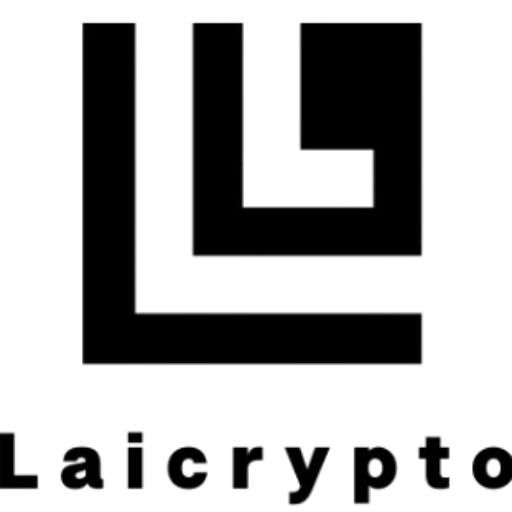Subscribe to Updates
Author: Michael Johnson
The Protocol Support team is organizing a grant round to support the upcoming Ethereum KZG Ceremony. The KZG Ceremony is a coordinated public ritual that will provide a cryptographic foundation for Ethereum scaling initiatives like EIP-4844. Learn more about the Ceremony and participate in the test version at ceremony.ethereum.org. If you’d like funding support to contribute at a deeper level, there are two ways to qualify: writing your own implementationsubmitting entropy generated by non-traditional sources or through a unique process → APPLY BY JAN 31 or learn more below Writing your own implementation The best way to avoid a bug…
Friends, As the year of the Merge ends, we wanted to share updates from many of the Ethereum gardeners and EF-supported teams that achieved long sought accomplishments, both big and small, alongside the rest of the ecosystem in 2022. We all have a lot to be thankful for, from the new communities we’ve come to know, to having each other through it all! As always, this roundup series focuses on EF-supported teams whose members are working to grow and improve Ethereum as a whole. Included in this edition are updates from many teams highlighted in the previous report, and other…
From the explosion of the scaling and layer 2 ecosystems to the first Devcon in three years and The Merge, it has been an exciting year for Ethereum and ethereum.org. We’ve shipped many impactful features and content, with thousands of incredible contributors helping us along the way. Let’s dive into our highlights of 2022: Translation program 🌎 Bringing educational Ethereum content to as many languages as possible is critical to our team’s vision for ethereum.org. Our incredible community of contributors has come a long way since we became a multilingual website in 2019, and in 2022 we were thrilled to…
It’s always fun to hear about new grants as they’re awarded, but what happens after the announcement? In this series, we check in on projects that are well underway or already at the finish line. You may have noticed something different—instead of monthly posts, we’ll be highlighting grantees who… Source link
The following is an update from Ethereum Foundation Fellow Marcus AM. Hola 👋, my name is Marcus and I’m a researcher and builder from Guatemala, and an EF Fellow. An optimist at heart, I’m driven by leveraging social, cultural and technological innovation to build better societies – a conviction I’ve held from a young age. Guatemala: A Country of Challenging Opportunities As a child, I would spend my weekends accompanying my father to visit many of Guatemala’s most desolate townships. At the time, he ran a non-profit whose mission was to deliver last-mile healthcare and establish educational programs. The community…
With The Merge now firmly behind us, protocol developers have been making progress across a (record?) number of areas over the past few months. Withdrawals, danksharding, EOF, verkle tries, history expiry, SSZ and more have all seen significant progress recently! In order to help move each of these threads forward, and to run through one more series of Shapella stress tests, client team members gathered in person for a week-long interop event in Austria: Edelweiss 🏔️ Unlike Amphora, which had a singular focus on The Merge, this event had two major tracks, focused on the Shapella and ProtoDanksharding network upgrades…
The Privacy & Scaling Explorations team is excited to announce the winners of the Layer 2 Community Grants 2022. The Layer 2 Community Grants round started on October 24th, 2022 and was open for 6 weeks. In total we received 130+ proposals and thank each project for taking the time to apply. The wishlist compiled sought applications from all areas including Layer 2 explorers, cryptography, and education. This chart shows percentage of initial applicants by category: Due to the high quality of proposals, we raised the budget from an initial 750k USD to a total of 948k USD. The awarded…
Withdrawals are imminent. tl;dr Shanghai+Capella (aka Shapella) is on the horizon. Stakers, node operators, infrastructure providers — pay attention and test!The Academic Grants Round is live! Applications are due by February 27, 2023 Shapella on the horizon 🌅 After much testing and development, the Shanghai+Capella (Shapella) mainnet upgrade is moving into the final pre-launch sequence — public testnets! The Zhejiang testnet is live and available for stakers and users to test Shapella today. And, the first of the long-standing public testnets — Sepolia — is scheduled to go through the upgrade on February 28th. Shapella contains many features, but most…
Withdrawals are coming! The Shapella network upgrade will activate on the Sepolia network at epoch 56832, scheduled for 4:04:48 AM UTC on Feb. 28, 2023Stakers & node operators should read this post as well as the Withdrawals FAQThe Zhejiang testnet can be used to test Shapella functionality prior to the Sepolia upgrade After months of testing and an ephemeral devnet launch, the Shanghai/Capella (a.k.a. Shapella) network upgrade is now scheduled for deployment on Sepolia. This upgrade follows The Merge and enables validators to withdraw their stake from the Beacon Chain back to the execution layer. It also introduces new functionality…
Community & educationBlockchain Education in NepaleSatyaSupport to host free meetups and their blockchain course that aims to familiarize Nepalese developers with the key elements of blockchain through project-based learning.Community & educationCryptoStatsCommunity-driven project that provides neutral crypto metrics and develops tools for gathering data and building websites that visualize the data in practical ways for the community.Community & educationDeFi LATAM MeetupMeetup with educational talks and workshops to celebrate the end of the year and foster enthusiasm to continue building together in the next year.Community & educationDevcon Satellite Events GrantsSponsorship of Devcon-related meetups and watch parties around the globe, with the purpose…


